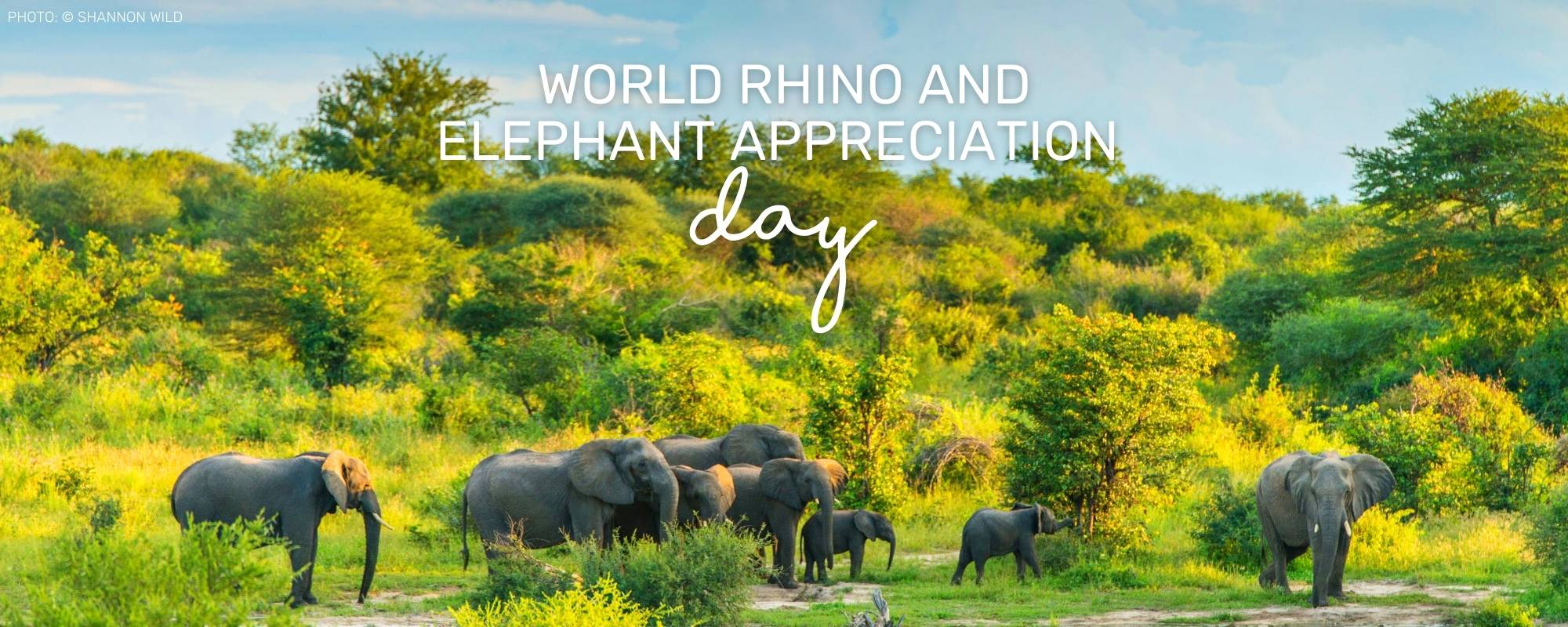
World Rhino Day and Elephant Appreciation Day
Posted on
They are two members of the famous Big Five and they are two of the largest mammals on Earth; the rhino and the elephant are iconic.
Symbols of strength and power, their ancient forms are etched into rock faces across Africa, and they are characters in children’s stories and nursery rhymes, teaching lessons of bravery and acceptance to the youngest generations.
Yet, we find ourselves on World Rhino Day and Elephant Appreciation Day with a battle to fight for these revered creatures. Both the rhino and the elephant face persecution by humans, their armour coveted by the super-wealthy and the superstitious.

But, this year, as we look back on a mostly terrifying, confusing, and grief-stricken year spent surviving a pandemic, we also get to say that the number of rhinos poached in 2020 was the lowest in almost 10 years.
That’s one way to look at it, and let’s be honest, we deserve to see the positive in things, but it’s important to be reminded that, still, one rhino was poached every 22 hours in 2020.
Elephant poaching for the ivory trade was at its worst in the 1980s when Africa’s elephant population was literally halved during the decade. This had a devastating impact on elephants, and shook the wildlife conservation industry to its core. More recently, elephants are known to cause problems in the rural communities bordering wildlife areas that rely on subsistence farming for survival. In retaliation to crop destruction, these small-scale farmers are known to poison and injure – if not kill – elephants that wreak havoc on their livelihoods.

It is a complicated issue of human-wildlife conflict and habitat loss, where poor and disenfranchised communities are encroaching on wildlife areas, and the inevitable happens when elephants gain access to their crops, and lions target their goats and cattle. The work needs to be done to both protect elephants from persecution and support the people who rely on their farms to survive.
With the loss of income generated by tourism during 2020, organisations that work to mitigate human wildlife conflict faced financial strain, and protected areas relied more than ever on external funding and donations to support their anti-poaching teams. K9 units with trained detection dogs and expert handlers patrol the ground, while aerial surveillance keep an eye out overhead – both requiring endless resources to remain productive.

In order to continue celebrating victories on World Rhino Day and Elephant Appreciation Day, we all need to play our part in supporting the organisations that rely on our donations.
You too can directly contribute to organisations like Nkombe Rhino, Rhino Rescue Project, Wild Tomorrow Fund, Saving the Survivors, Invictus K9, and the Zambian Carnivore Programme – all of which help do their bit to ease human-wildlife conflict and strengthen anti-poaching units in southern Africa.
Make a move and purchase one or more of our charity bracelets and 50% of what you pay will be donated to the organisation affiliated with that style.
Big or small, a contribution is a contribution, and our small business aims to help in whatever way we can! Thank you for helping us do what we do.

Written by Chloe Cooper
Don’t miss out on future posts so be sure to sign up for our Wild Tribe (scroll below to sign up).
New products and discounts first!
RETAIL & STUDIO
The Farm House, R527
Hoedspruit LP South Africa
Whatsapp: +27 79 225 4988
contact@wildinafrica.store
. . . . . . . . .
HEAD OFFICE
65/2 Arbor Ave, Robina
QLD 4226 Australia
